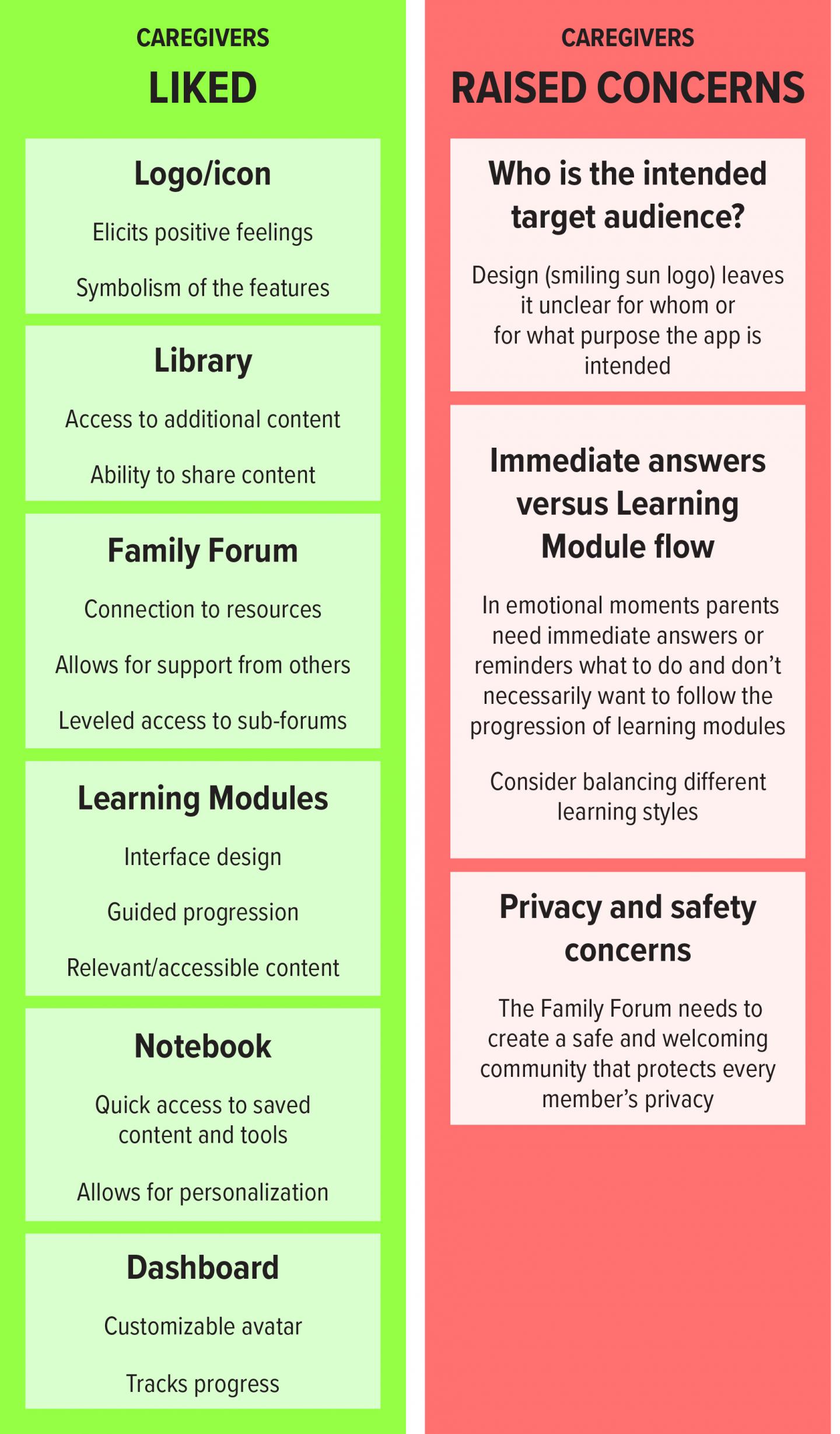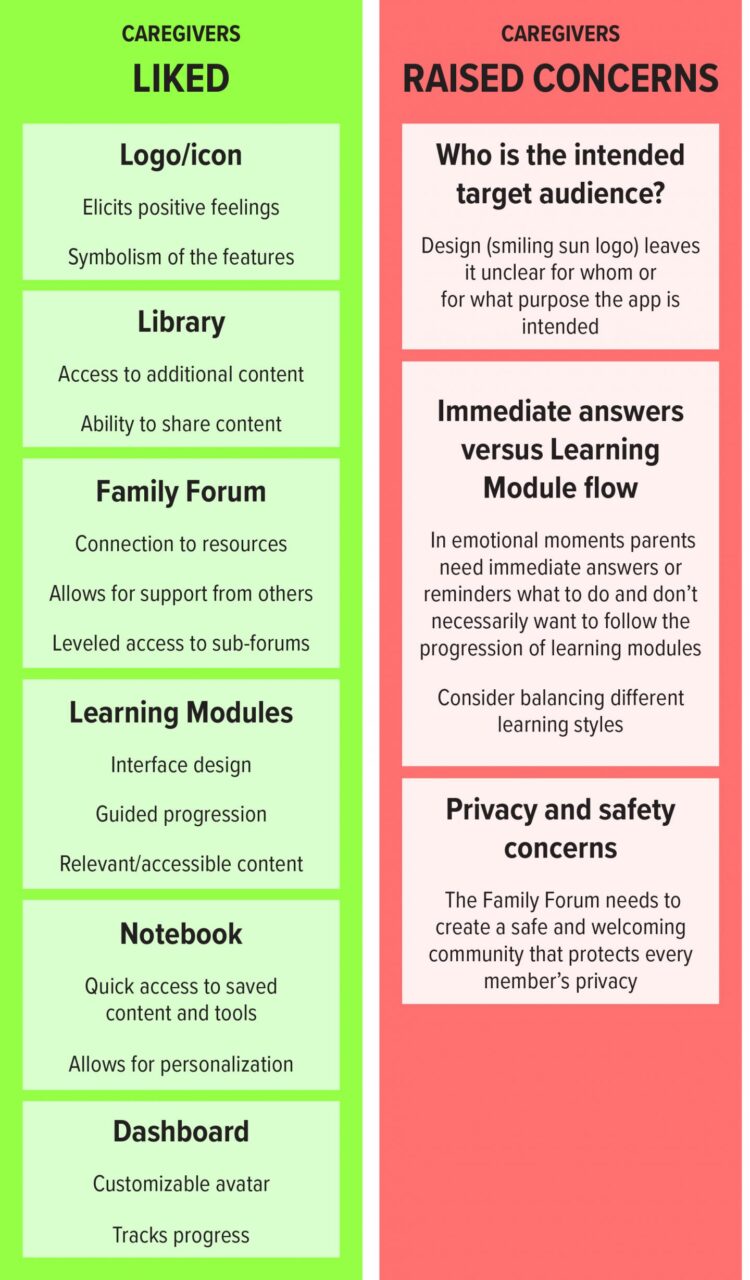
Credit: Researchers/University of Rochester
In the summer of 2017, Christie Petrenko, an assistant professor and research associate at the University of Rochester’s Mt. Hope Family Center, and Cristiano Tapparello, a research assistant professor in the University’s Department of Electrical and Computer Engineering, teamed up to create the first mobile phone app for caregivers of children with fetal alcohol spectrum disorders (FASD).
Through previous research, Petrenko, who is a recognized expert on a FASD, knew of the many challenges parents and caregivers face: isolation the lack of access to specialized care, limited financial resources, the stigma associated with the disability, and ultimately the caregivers’ quest for readily available and scientifically sound information.
“Many families have little to no access to the kinds of information and parenting strategies that are most helpful in managing the behavior of children with FASD,” Petrenko says. “They also need support from others who understand their experiences.”
Caused by prenatal alcohol exposure, fetal alcohol spectrum disorders affect around 2 to 5 percent of school-aged children in the United States and can result in lifelong developmental, cognitive, and behavioral problems.
Previous studies have pointed out that available online information for parents of children with developmental disabilities may lack in quality, consistency, and readability. In the past two-and-a-half years, the duo has designed, coded, assembled and written the content for their mobile health intervention app, FMF Connect. Its name and content are derived from the scientifically validated Families Moving Forward Program, developed at the Seattle Children’s Research Institute and the University of Washington. The researchers took mock-ups of the app to seven focus groups across the country, and then followed up with two beta tests.
The FMF Connect app allows users to easily access five distinct components:
- Learning Modules: training for caregivers
- Library: fact sheets and resource lists with medically sound advice
- Family Forum: a space for users to share advice and ideas
- Notebook: a place to save personalized content
- Dashboard: includes a customizable avatar that tracks progress through the Learning Modules and charts child behavior.
Now the qualitative findings from the focus groups, recently published in JMIR mHealth and uHealth, are in. Generally, the focus groups members–made up exclusively of caregivers of children with FASD– liked what they saw.
“Responses were generally enthusiastic,” says Petrenko. The caregivers liked that the information was easily accessible and organized, they could connect with others, and were able to share information. They also offered some constructive feedback, in particular related to interface design, and privacy concerns and dynamics within the Family Forum.
With this critical feedback in hand, Petrenko and Tapparello have been undertaking a few modifications and tweaks:
- Some focus groups participants said they were initially thrown by the app’s smiling sun icon and not sure if they were looking at a game app for children instead. While tweaks have been made to the sun’s face, the icon itself won’t be replaced. After all, says Petrenko, it’s the recognized logo of the Families Moving Forward Program. In the subsequent beta testing stage the design choice was no longer critically mentioned.
- The team developed community guidelines for the Family Forum to foster positive group dynamics and address privacy concerns. The team also trained moderators for the forum.
- Shortened text on each screen of the app reduced the need for scrolling.
- The researchers decided to allow continued user access to the app beyond the completion of the Learning Modules. Caregivers had told them that they wanted to go back to refresh skills and be able to reference key ideas during more challenging parenting situations.
- They added a video library, a table of contents, a tip of the day, and streamlined how videos are presented within the modules.
- They added a child behavior tracking tool and a daily rating for caregivers that asks about things such as selfcare and finding their child’s positives.
Want to be part of the app’s feasibility trial?
Go to fmfconnect.com to learn more about the study and complete a screening survey.
Media Contact
Sandra Knispel
[email protected]
Original Source
https:/
Related Journal Article
http://dx.





